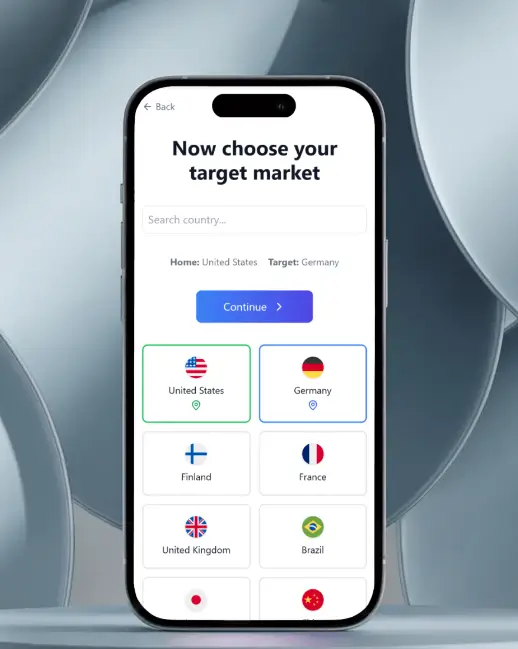Expanding into European markets brings tremendous opportunities for tech companies. However, successful entry requires careful planning and awareness of common hurdles. Understanding and preparing for these challenges can significantly improve your company’s chances of long-term success
Navigating Diverse Regulatory Requirements Across the EU
One of the biggest challenges tech companies, potentially yours might face when entering European markets is navigating the EU’s regulatory landscape. Unlike other regions, Europe combines overarching EU-wide rules with country-specific regulations, creating a complex environment for newcomers.
Companies often underestimate the effort required to achieve compliance with these diverse rules. For example, regulations like GDPR apply uniformly across Europe and significantly affect tech firms handling user data. However, product safety, labeling, or even environmental requirements might differ considerably from Germany to France or Sweden.
Missteps in regulatory compliance can lead to fines, delays, or damage to your brand reputation. Tech companies must carefully research and understand each market’s specific rules before committing significant resources. Many firms benefit from hiring local regulatory experts or partnering with knowledgeable advisors who understand the nuances of each country.
Proactively preparing for regulatory differences will help your company avoid common pitfalls and smoothly enter European markets.
Cultural Differences and Consumer Expectations in European Markets
Another major challenge tech companies face in Europe involves adapting to distinct cultures and consumer expectations. Europe isn’t a single market, it’s a collection of unique countries, each with its own culture, language, and customer preferences. Assuming one marketing strategy or product approach will work across the entire region often leads to disappointing results.
Consumer expectations can vary widely, even among neighboring countries. For example, Northern European buyers typically appreciate straightforward, practical communications, while customers in Southern Europe might respond better to a relationship-focused approach. Understanding these subtle differences influences everything from your sales strategies and advertising messages to customer support and product design.
Tech companies often overlook the importance of localizing their products and communications effectively. Localization isn’t just translation; it means aligning your brand and product with the values, preferences, and buying habits of each local market. This process requires significant research and, ideally, input from people familiar with each region’s culture.
A thoughtful approach to cultural adaptation will significantly improve your company’s acceptance and success in European markets.
Building Reliable Local Partnerships and Networks in the EU
Establishing reliable local partnerships is crucial for tech companies entering EU markets. The right partners help your business navigate unfamiliar territory, provide valuable insights, and connect you directly with customers. However, finding and developing these partnerships can be challenging, especially from abroad.
Successful partnerships in Europe require careful selection and trust-building. Your chosen partners should share your company’s values and have deep knowledge of the local market. Common options include distributors, resellers, system integrators, or customer support providers. Each type offers unique benefits depending on your market entry strategy and product complexity.
A key difficulty is accurately assessing potential partners from a distance. Companies often struggle to verify a partner’s reliability, local reputation, or real capabilities without detailed market research or direct experience. Poor partner choices can harm your reputation or delay your market entry significantly.
Investing in thorough research and due diligence early on reduces this risk. Many companies also engage local consultants or use trusted references to evaluate potential partners, ensuring they align with the company’s strategic goals.
Complexities of Local Hiring and Managing European Teams
Managing local hiring and building a capable European team is another challenge companies commonly encounter. Hiring in Europe requires understanding not only local talent markets but also employment regulations, expectations around compensation, and cultural norms regarding work-life balance.
Employment regulations vary widely across the EU, and non-compliance can result in fines, legal issues, or even reputation damage. Navigating local employment laws, such as mandatory benefits, working hours, and termination procedures, requires expertise or reliable local guidance.
One effective way companies reduce these complexities is by outsourcing sales activities initially. Using local sales outsourcing firms allows your business to rapidly enter a market without immediately committing to full-time employees. This strategy lowers initial investment risks and speeds up market entry because outsourced sales teams already have local knowledge, relationships, and experience selling similar products.
Sales outsourcing also provides flexibility. Companies can scale their local presence up or down easily based on market feedback and sales results, greatly reducing the financial risk associated with hiring too quickly. Once a reliable revenue stream is established, companies can transition from outsourcing to building a dedicated in-house team.
This phased approach significantly reduces risk and streamlines your initial European market entry, giving your company room to adjust and grow strategically.
Managing the Costs and Financial Risks of Entering EU Markets
Entering Europe involves substantial financial commitment. Initial costs include market research, regulatory compliance, marketing campaigns, product localization, and setting up local operations. Companies often underestimate these expenses and risk running out of funds before seeing meaningful results.
European markets differ widely in terms of costs. Salaries, office space, taxes, and legal services vary significantly across countries. Tech companies must budget carefully and anticipate costs unique to each target market. Effective financial planning helps avoid budget overruns and maintains operational stability.
Financial risk also increases when expanding into multiple European markets simultaneously. Companies spreading their resources too thin struggle to gain traction. To minimize risk, start small, focusing on one or two key markets. Once you gain experience and revenue grows, gradually expand into additional countries.
Competition from Established European Brands and Technologies
European markets are highly competitive, and local customers often prefer established brands and technologies. Breaking into markets where customers have trusted relationships with familiar local companies presents a significant challenge.
To overcome this, companies must clearly communicate their unique value. Simply having a good product or service is not enough. Your company must show how your solution solves problems better or differently than existing European competitors. Effective communication tailored to local needs and preferences makes your offering more attractive.
Building trust is essential. Local testimonials, references, and successful case studies from your home market can help convince skeptical European customers. Demonstrating reliability, quality, and commitment to customer success positions your company as a credible alternative to established brands.
Ready to Overcome These Challenges and Succeed in Europe?
Understanding these challenges is a critical first step in successfully entering European markets. Our experienced team provides guidance through every stage of your European market entry, from initial market research to building strategic partnerships and managing local operations. Contact us today to find out how we can support your successful expansion into Europe.
You can also play our international expansion quiz game. You can select your home and target markets and see if your company has what it takes to enter the market successfully. The game is completely free to play and you’ll get a personalized and detailed analysis at the end.


















